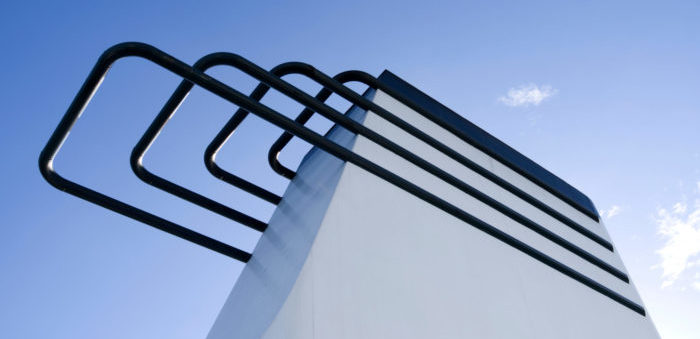Mr. Ian Adams has been recently appointed as the Executive Director of the Clean Shipping Alliance (CSA) 2020 which aims to clarify issues concerning the Exhaust Gas Cleaning Systems (EGCS) and assist in the effective enforcement of the upcoming sulphur cap. Mr. Adams anticipates an increase in global shipping costs overnight from 1 January 2020, highlighting that a postponement of the amendments to MARPOL Annex VI is off the table; therefore, the industry needs to get fully prepared for compliance by the end of 2019.
SAFETY4SEA: What are your top priorities on CSA 2020 agenda holding the position of Executive Director? What was the reasoning/market forces behind the formation of such an Alliance?
Ian Adams: The Alliance was formed on 27th September 2018 with a mission to provide information and research data to better inform industry and the wider public. In addition to serving as an advocate for companies working to reduce marine exhaust gas emissions through the use of exhaust gas cleaning systems , CSA 2020 will support the scheduled implementation and effective enforcement of the IMO requirement for a 0.5 percent global sulphur cap on fuel content as of January 1, 2020. It is my role to ensure these missions are achieved.
S4S: What is your organization doing differently in order to prepare the maritime industry toward 2020 sulphur cap?
I.A.: CSA 2020 advocates the use of Exhaust Gas Cleaning Systems (EGCS) as a means for compliance with the forthcoming IMO 0.5 per cent global sulphur cap. We believe that the use of EGCS is the best way to comply with the cap. It is an environmentally robust means of compliance which has been scrutinized in detail through a working group of the IMO sub-Committee for Bulk Liquids and Gases (BLG) (now replaced by Pollution Prevention and Responses (PPR)). It also makes economic sense for some ship owners. It may not be suitable for every ship owner, but it will help to ease the expected shortfall in compliant fuel on 1st January 2020.
[smlsubform prepend=”GET THE SAFETY4SEA IN YOUR INBOX!” showname=false emailtxt=”” emailholder=”Enter your email address” showsubmit=true submittxt=”Submit” jsthanks=false thankyou=”Thank you for subscribing to our mailing list”]
S4S: Are you optimistic about the ability of shipping to handle the 2020 global sulphur cap? What additional measures may be needed for effective implementation?
I.A.: I am confident the membership of CSA 2020 will be able to comply by using the fuel which they use today. The residual fuel will not disappear and the refineries will still be able to supply the fuel.
S4S: Given the fact that we are on the final stretch what sort of developments and improvements can we look forward to minimize the impact of the uniform global deadline of 2020?
I.A.: As mentioned above CSA 2020 members will, using EGCS will help to minimize the impact of the global cap. By being able to continue to use High Sulphur Fuel Oil (HSFO) this will reduce the demand for Low Sulphur Fuel Oil (LSFO), distillates such as Marine Gas Oil (MGO) and Marine Diesel Oil (MDO) and these newly developed, so called, hybrid fuels.
S4S: What worries you most about the quality of the available fuel from 2020 onwards?
I.A.: The use of EGCS means that the members of CSA 2020 will continue to purchase their fuels to the existing standard ISO 8217. They will therefore remain confident that the quality of the fuel which they purchase will be to the same standard as today. ISO 8217 has been developed from its first incarnation in 1987 to the latest version in 2017. Over those 30 years the specification has been modified to reflect the quality of the fuels that exist and the engines ability to handle them.
S4S: Which are the key drivers and barriers towards investing in scrubbers (especially open loop)? Do you think that the recent scrubber bans in major ports such as Singapore will work as a catalyst for operators’ decision?
I.A.: Ports have the right to mandate their own requirements and it is commonplace for local administrations to continually assess their ship discharge requirements. But to link these decisions to the EGCS debate is unfounded, sensationalist and does nothing more than perpetuate the spread of factually incorrect information. The case for investing in EGCS is unaffected by local rules of this nature. The economic benefits for EGCS are generated in the most part when the ship is sailing between ports.
S4S: What is your forecast for 2025 (5 years after the initial deadline) with respect to scrubbers, LNG adoption and use of ULSFO in the global fleet?
I.A.: We believe that LNG will continue to gain in its share of newbuilds, especially in the ferry market and ships in limited coastal trade, that scrubbers will be in use on a significant percentage of the commercial fleet, and that the remainder will use ULSFO, especially for ocean transits.
S4S: What could drive the distortion of the level playing field with respect to uniform global compliance with the 2020 sulphur cap?
I.A.: We expect that a high level of compliance in the world’s commercial shipping fleet will create an increase in global shipping costs overnight from 1 January 2020.
S4S: If you could change one thing about the Sulphur cap industry, what would it be and why?
I.A.: That concern by some about the environmental impacts from open loop scrubbers be replaced by greater understanding of the very real environmental benefits that these systems provide.
S4S: What is your key message to industry stakeholders with respect to Sulphur cap?
I.A.: The amendments to MARPOL Annex VI scheduled for 1st January 2020 will enter into force on that date. Do not be under the mistaken belief that they will be postponed. The industry needs to be fully prepared for compliance on that date.






























































